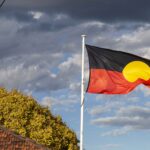A new network for GPs in areas of poverty and deprivation hopes to make their work visible and guide better practice.
Cast your minds back to those days when the covid pandemic hit Australian shores.
We were in lockdown; we had advice about social distancing and about who would be vulnerable to the worst effects of covid.
And then covid took hold, exposing exactly the cracks in our society and health services that we already knew about.
One of the main geographical areas affected was west and southwest Sydney. That covid took hold here was entirely predictable. People living here were on lower income jobs, the sort of jobs that are essential, and can’t be done from home. People lived in overcrowded housing or high-density apartments, because that’s what people can afford when housing is so expensive. This profoundly affected the ability of people to follow the advice about social distancing.
People in these communities at the lower end of the social gradient already had more pre-existing diabetes, heart disease or renal disease, and often multi-morbidity at a younger age, making them more vulnerable to severe covid.
The general practices serving these communities regularly appeared on the lists we all checked daily of exposure sites. These practices weren’t replete with resources before covid – many patients wouldn’t be able to afford a co-payment – and yet had to source their own personal protective equipment (PPE). Vaccine rates were lower in these communities not because of vaccine hesitancy, but because of limited health service access.
I recount these recent memories because they remind us of what we already knew: the health of our patients and the ability of our practices to respond to this is profoundly dependent on the circumstances in which people live, and these circumstances are profoundly dependent on people having sufficient money.
Clearly, there are many overlapping issues of health equity that relate to living in a remote or rural area, being Aboriginal or Torres Strait Islander, being of refugee or other migrant backgrounds, or disability, for example.
Underpinning all of these, and worsening health equity for all these groups, is poverty.
The recent covid example shows us this is not an abstract idea for us or for our patients. It has very real consequences for the way we provide services and for the health of all our communities, not just those affected by poverty.
We know from our own experiences, and from the work of the GPs at the Scottish Deep End Project in Glasgow, that there are particular joys and challenges to working in deprived communities.
The problems managed are more complex, encompassing physical health, mental health and social circumstances, with more multimorbidity and more disability at a younger age. This requires longer consultations, and teamwork and input from a wider range of agencies. Patients and their families often find it harder to access services because of cost or transport or previous experiences.
The crisis in Australian general practice, where Medicare rebates don’t come anywhere near to funding the cost of care, hits particularly hard in deprived communities, where this funding shortfall can’t be made up by patient co-payments, and there’s even less Medicare revenue available because of the need for longer appointments.
And yet these are precisely the communities where GPs can have the most impact on improving people’s health.
The GPs working in these areas have specific skills in patient engagement and empowerment, in managing multimorbidity and complexity and in advocating across multiple agencies for their patients. They exhibit the pragmatism that gets results among people the rest of the health system views as being “hard to reach”.
There’s a long history of teaching and thought among GPs working in this area, resulting in a movement now called GPs at the Deep End, but whose most famous originator was probably Julian Tudor Hart, a pioneering GP in a Welsh coal mining village. He was influential for a number of reasons, but his legacy in this context was coining the Inverse Care law.
The first part is well known: “The availability of good medical care tends to vary with the need for it in the population served.”
The second part is less well known, but describes perfectly the market failure we see in Australia: “This inverse care law operates more completely where medical care is most exposed to market forces, and less so where such exposure is reduced.”
Working as a GP in an area of deprivation, then, is a specific interest, and being effective requires us to draw on the legacy of academic research, thought and specific teaching. It requires peer support and discussion, especially as the work itself, like all work that is worth doing, can be challenging.
For this reason, Dr Liz Sturgiss and I have set up the Specific Interests Network on Poverty and Deprivation within the RACGP’s Specific Interests Faculty. We hope to provide support for those of us working in this area, and guide each other to better practice. We hope to make working in areas of poverty visible to our peers, and to be able to provide reminders of the joys of effective general practice to our registrars. The voice of the RACGP’s advocacy will also be enhanced in advocating alongside other specific interest groups on issues of health equity.
The work may be challenging at times, but with support and a strong voice, the problems of poverty are soluble. The solutions are not very hard, they just require listening to the voices of the people most affected.
How do we know this? During the covid outbreak, many more people became dependent on social welfare payments as their work disappeared, and poverty rates went down significantly as payments were increased.
It demonstrated for a short time that given sufficient income people can regain some affordability and control over their life. People could afford co-payments to see their GP. Poverty, and the consequent health impacts, is a choice of those in power, not a choice of those in poverty.
Dr Tim Senior is a GP who practices, teaches, develops policy and writes about general practice and primary care. He works at Tharawal Aboriginal Corporation, the Aboriginal Community Controlled Health Service in South West Sydney and is on the TMR editorial board.




